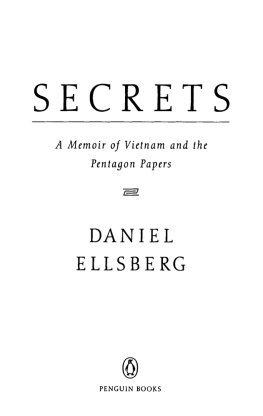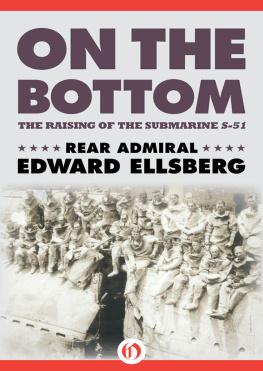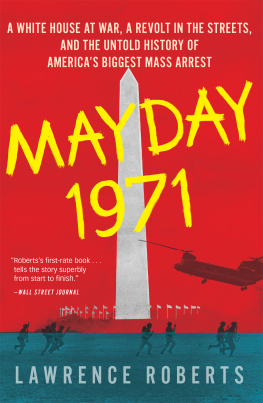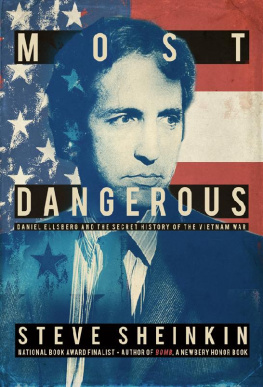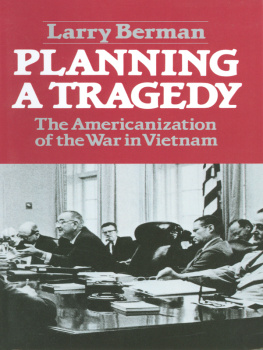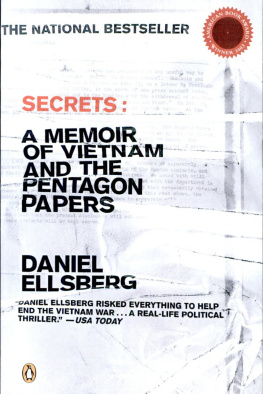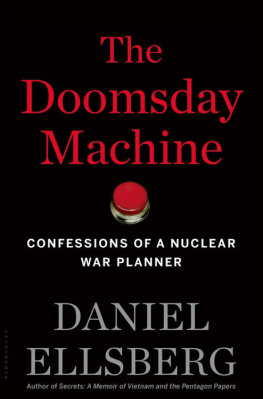Praise for Secrets by Daniel Ellsberg
The publication of Daniel Ellsbergs memoir, Secrets, at this particular moment is undoubtedly coincidental, but there is an eerie timeliness about it. Some may be tempted to dismiss his argumentsbut skeptics should put aside their doubts and read the book. Secrets is an often gripping account by a controversial figure of a tumultuous era that still troubles and divides us. It underscores the need to understand history in areas of the world whose destinies we presume to shape. It provides important insights into the national security bureaucracy that produced the Vietnam War, the system that helped sustain it and the ethos and code of loyalty among officials that held it together. If were looking for a warning signal as we teeter on the brink of yet another war waged on the basis of information considered too important to share with the public, we should look no further than in these pages.
Los Angeles Times
Secrets is more than an absorbing memoir. It offers new insights into the high crimes that taught Americans to distrust their government. Ellsbergs deft critique of secrecy in government is an invaluable contribution to understanding one of our nations darkest hours. The picture he draws of life in the corridors of powerelitist advisers dashing down hallways at the summons of their masters, avidly concocting lies for all occasions, treating the public like a population of moronsleaves one fearing for our endangered democracy.
San Francisco Chronicle
[A] real-life political thriller that cogently traces the nations failed policy in Vietnam.
USA Today
As our understanding of the Vietnam War deepens with time and the experience of subsequent conflicts, we are likely to see Daniel Ellsbergs Secrets: A Memoir of Vietnam and the Pentagon Papers as a foundational document, a primary source on what was surely the greatest and defining catastrophe in twentieth-century American history.
San Francisco Bay Guardian
Secrets will be of value to readers interested in recent history for the light it sheds on Americas engagement in Vietnam. But it bears also on the present. It reminds us of the importance of dissent within democracies in time of wara test that, with regard to Vietnam at least, America can claim to have passed, thanks in the end to its press, its courts and the courage of troublemakers like Mr. Ellsberg.
The Economist
[F]ascinatingSecrets is not the hasty memoir of somebody in the news who is aware of how fast his star is fading. Its long and meticulous; every scene is thoroughly researched and carefully paced, and fitted to its place in Ellsbergs overall political progression. Ellsberg encapsulates each of the anti-war movements main phases. The Pentagon section of Secrets is a wonderful evocation of the intoxicatingly frantic routine of the overachievers who populate the next-to-the-top level of government. The publication of Secrets is uncannily well timed. Ellsbergs first day of work in the Pentagon, in the summer of 1964, coincided with the Gulf of Tonkin incident, which became the basis for a congressional resolution that gave Lyndon Johnson almost unlimited authority to pursue the Vietnam War. Ellsberg establishes that the incident was not the military attack on an American ship that Congress thought it was, and that the administration was cooking up evidence to justify a course of action it had already decided upon. Just a few weeks ago, Congress passed a resolution authorizing a war with Iraq, which gives the president the widest war-making latitude since the Gulf of Tonkin Resolution.
The New Yorker
It is a dramatic, fast-paced, and powerful taleand its publication at this time is important. Ellsbergs own explanation of his transformation is grippinghis memoir is a compelling contribution to the literature that brings to life the human sacrifices required by every generation if it wishes to make the democratic process responsive and meaningful.
The Nation
Daniel Ellsberg has released this memoir with an exquisite sense of timing. As Congress considers the third war resolution in twelve yearsIraq, Afghanistan, and Iraq againEllsberg begins his book with its Gulf of Tonkin resolution of 1964. That was the vote authorizing Lyndon Johnson to use military force in Southeast Asia as the president determines.RemarkableConservatives, who resented Ellsberg thirty years ago, might tackle Secrets with a new appreciation. His targets are just as often Democrats as Republicans, and one can easily accept his entire story as a tale of the mendacity of Big Government.
The Seattle Times
[S]hould be required reading in the White House.
Richard Larsen, Ventura County Star
[A] page turnermesmerizing. As the Bush administration prepares for war with Iraq, Ellsbergs chilling description of government deception reminds us that secrecy is the greatest threat to democracy.
Ruth Rosen, San Francisco Chronicle
It is hard to read his book without seeing the dramatic parallels between the Kennedy/Johnson/Nixon Vietnam era and the Bush/Clinton/Bush Iraq and terrorism era.
Knute Berger, Seattle Weekly
No previous psychological portrait of a whistle-blower has topped Ellsbergs for suspense, subtlety and clarity. The admirable qualities of the book extend beyond its insights into one persons evolution from organization man to dissident. Ellsberg is a keen observer of public policy. The citizenry he tried to serve by leaking the Pentagon Papers thirty-one years ago is fortunate to have access to his wisdom.
St. Louis Post-Dispatch
Those looking for insight on the Bush administrations transformation of executive power could do nothing more to horrify themselves than read Daniel Ellsbergs Secrets: A Memoir of Vietnam and the Pentagon Papers.In Secrets, Ellsberg asks us once more to learn. Given the likely fact that the phenomenon he documented is happening again, unfortunately its far too timely a request.
Durham Independent
[C]onsistently dramatica compelling narrative. His well-told memoir sticks in the mind and will be a powerful testament for future students of a war that the United States should never have fought.
The Washington Post
In this long-awaited memoir, Ellsberg tells the gripping story of his transformation from hawk to dove, insider to outsider, secrets keeper to secrets spiller.
The Boston Globe
Reading the complete Pentagon Papers for the first time in the summer of 1969, Daniel Ellsberg had two revelations. One, of historical interest today, concerned the character of the Vietnam War; the other was about the war powers of the presidency, and how they corrupt presidents. The relevance of this second revelation, as President Bush decides whether to exercise the authority Congress has given him to attack Iraq, is profound.
The Atlantic Monthly
His odyssey from Pentagon staff officer to the man who spirited forty-seven volumes of top secret documents out of the Rand Corporation, copied them, and delivered them to The New York Times and a dozen other newspapers is breathtaking.
London Review of Books
In times of war, Americans tend to give the president the benefit of the doubt. They assume hes acting rationally, on the basis of access to classified information they cant know about. But in his new book Secrets: A Memoir of Vietnam and the Pentagon Papers, former Defense Department analyst Daniel Ellsberg demonstrates that such assumptions can be false. Secrets describes, as no book has before, exactly how American leaders deceived the public about a war plan that they knew could not win in Vietnameven as they sent increasing numbers of soldiers to fight and die there. As the U.S. prepares for a war against Iraq whose outcome no one can foresee, many will ask if were doomed to repeat this history of deception.
Next page
